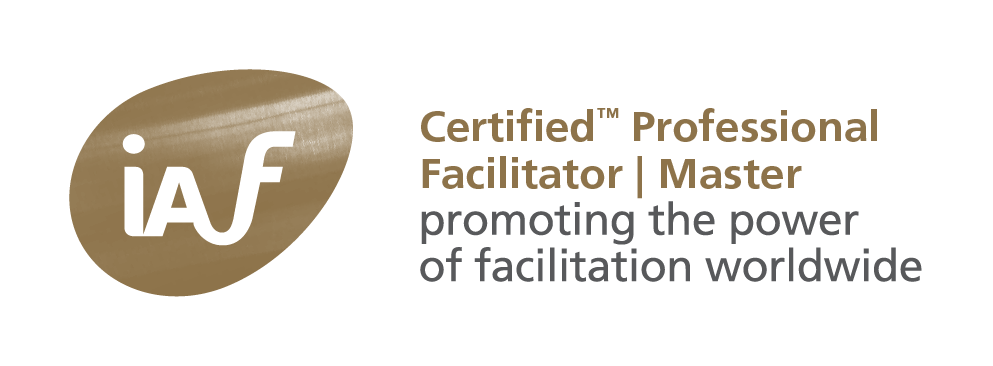Marcella asked in her blog “can you change anything”?. She sees many people in organization being discouraged, feeling helpless. She notices the loss of potential. The answer is simple and difficult at the same time: “You cannot change anything, but you can change changing.”
Perhaps without knowing, she refers to the paradoxes of Expressing (speaking, acting), which are connected with the paradox of Power. I use the word “expressing”, because to change, you’ll move, act against pressure. Your own internal voices and the voices from outside. Smith and Berg (Paradoxes of Group Life) discern four elements of this paradox:
– Authority: do you have the authority to change? Who authorizes a change? Or: who do you authorize to make a change? Who says so?
– Dependency: what are your dependencies? What is blocking you? Or: what are you blocking? What depends on you? What will others say?
– Creativity: change destroys a status-quo: you’ve got something to loose. How to change the situation and make some gains? I’ve only heard criticism on my creations.
– Courage: perhaps the crucial question: facing what you fears, risks and acting none the less. People will say: “told you so!” (and when I met with success, the comment went: “still glad I warned you”).
You can now see, how this relates to the Paradox of Power. Situations seem to be overwhelming, because groups are bigger than an individual. The power of change is acquired by the powerful people: those with authority, from whom you depend, who stifle creativity (ever seen a successful innovation project in a big organization?) and require your helplessness. So change, as Machiavelli already wrote, depends on the irrational person.
It ought to be remembered that there is nothing more difficult to take in hand, more perilous to conduct, or more uncertain in its success, than to take the lead in the introduction of a new order of things. Because the innovator has for enemies all those who have done well under the old conditions, and lukewarm defenders in those who may do well under the new. This coolness arises partly from fear of the opponents, who have the laws on their side, and partly from the incredulity of men, who do not readily believe in new things until they have had a long experience of them.
At the same time, powerlessness as a response, is adequate. It is. And it also disables management. Absolute power not only absolutely corrupts, it also generates absolute powerlessness. So this creates and maintains the “double bind”: preventing us and (y)our organizations from achieving (y)our potential. The perfect example of this is are the Dilbert cartoons (Check this one on power and change. When they first appeared, I thought: finally, now everybody can see how corporations work and we’ll make an end to it. But people just laugh about them, as if they’re unreal. As if they are about other people …..)
So we’re stuck. You cannot change anything. But you can change. Change your attitude, your perspective on change. It’s not a solution, more a kind of recipe, a list of options. Because “they” want you think you’ve got only one option: continue the status quo. Facilitative Leadership is about creating options, choice and liberating people to choose.
1. Authorize others to make a positive change. Don’t warn them, support. The easiest way is to encourage (element 4) your co-workers.
2. Resistance, a blockade, is always associated with a longing, an intention. Shift your focus from what is blocking you towards what you desire. This connects with the 3th element. Find others, who share your longing (1st element).
3. Pivotal Technique (by Robert Fritz) move from action –> reaction to action –> creation (just shifted one letter) by acknowledging current reality (just look around), decide what you really want or desire (2nd element) and go on (continue what you were doing or change)
4. Use your imagination, and ask yourself: “what is a bad thing that could happen, when I change?” and then: “what’s worse?” and then again, and again. Now, ask your self: how realistic is this? We do not fear the things, we just fear the fear. And if you’re is indeed full of fear? You should only regret things you didn’t do. It is easier to ask for forgiveness than for authorization. Back to the 1st element.
Now, can I change anything? No, I don’t own the power. But you can. Be the change you want to see (no, this one is not by Einstein).




